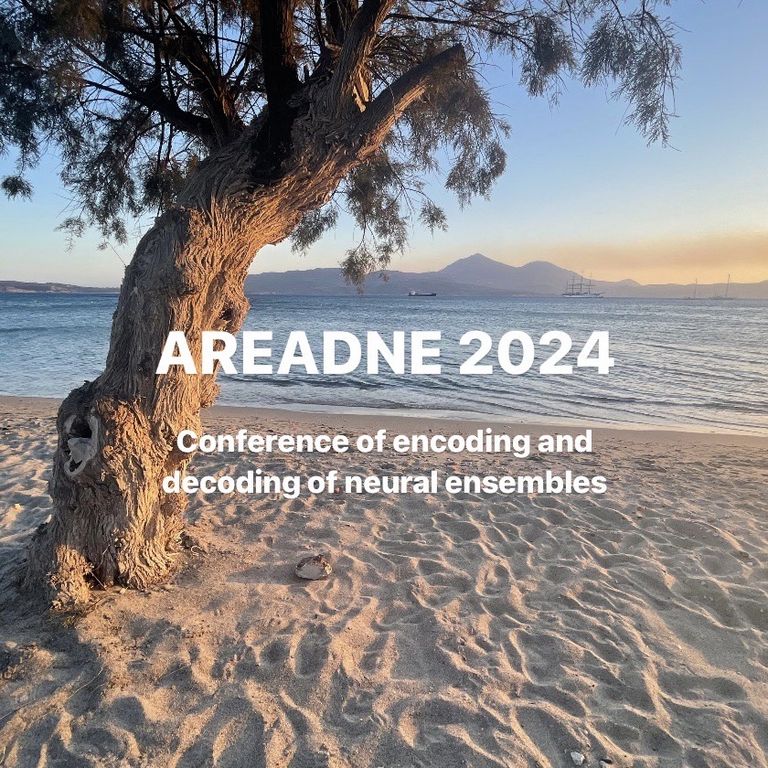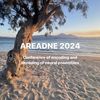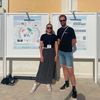AREADNE 2024

We, Lisa Schmors and Fabio Seel, attended the "Research in Encoding And Decoding of Neural Ensembles" (AREADNE) between June 25-28th 2024, which took place on the Greek island of Milos.
The venue is not the only special aspect of the conference: it is held on a comparatively small scale (around 100 participants) and is designed to engage all participants in discussion and community building.
The three main components through which this is achieved are the unique programme, the poster sessions and the excellent presentations by the invited speakers.
Each of the four days featured two oral sessions interspersed with a long afternoon break where participants could meet other attendees and share their research while exploring the island.
The poster sessions after the evening sessions were held outdoors at sunset, which created a unique atmosphere and made the discussions even more enjoyable.
At this conference, basically every participant is required to give a poster presentation, regardless of their career status. This made it easy for early career scientists to get in touch with some of the leading researchers in the field.
In the poster session, Lisa Schmors gave an insight into her work on the functional organisation of visual input in the superior colliculus of the mouse, while Fabio Seel presented the conditions and hyperparameters under which CNNs learn interpretable receptive fields such as gabor filters.
The conference's focus on new and largely unpublished research contributed to the interactive and discussion friendly atmosphere, and was also evident in the high quality presentations.
Some of the highlights for us were Martin Usrey's talk on how spikes are transmitted through the LGN from the retina to the visual cortex, as well as Haim Sampolinsky's talk on the separability of representational manifolds at different layers in deep neural networks and the alignment of these representations across modalities (visual and language models).
The last session of the conference could not have been better: Gilles Laurent motivated to look into the intelligence of species other than those typically studied, and illustrated this with an insight into his ongoing work on cuttlefish and their fascinating camouflage behaviour. Finally, Anthony Zador discussed the future of neuroscience and AI with all ethical implications and the importance of passing information from one generation to the next through the genetic bottleneck for faster learning and presented a machine learning approach to this.
Overall, this conference was a really great experience, both on the scientific and the community-building level, and a very motivating experience as a PhD student.

